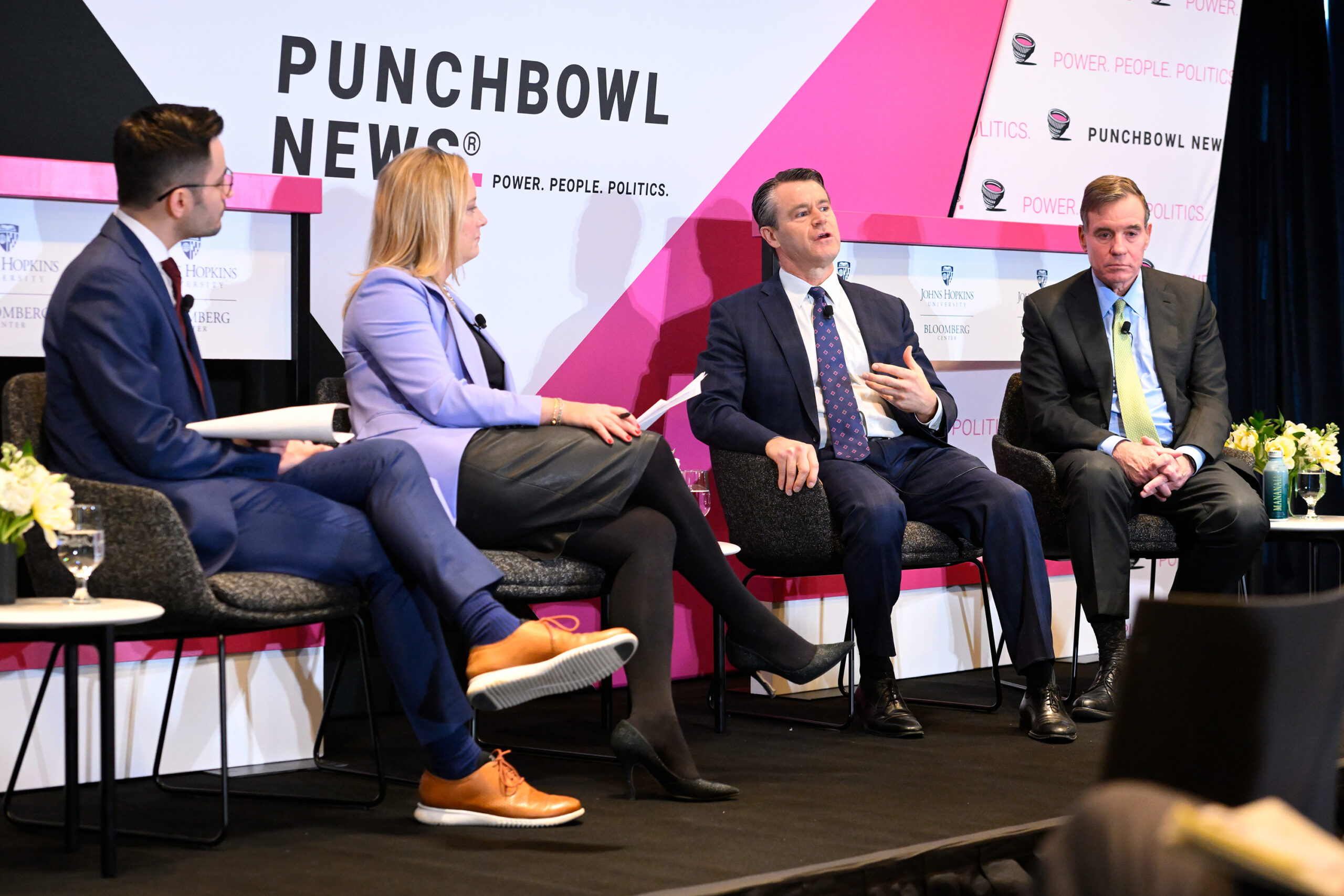What’s next for AI in Congress? Sens. Mark Warner and Todd Young get the wheels turning
Lawmakers discuss regulatory approaches to the rapidly evolving technology, the threat of AI to the stock market, and questions surrounding privacy and copyright

Sens. Mark Warner (D-Va.) and Todd Young (R-Ind.) have become Congress’ de-facto artificial intelligence experts, serving as a resource for their colleagues attempting to understand the constantly changing technology.
The pair, along with U.S. Senate Majority Leader Chuck Schumer (D-N.Y.) and Sen. Mike Rounds (R-S.D.), organized a series of forums about the potential and peril of AI. Warner and Young continued their conversation at a recent event, moderated by Punchbowl News’ Anna Palmer, at the Johns Hopkins University Bloomberg Center. They discussed possible regulatory approaches, the threat of AI to the stock market, and questions surrounding privacy and copyright.
Here are some of the top takeaways from their discussion.
- Regulating AI is a non-partisan issue.
Both senators said Democrats and Republicans are interested in getting regulations on artificial intelligence right—rather than falling into traditional partisan debates.
“It’s going to be less left/right than future/past,” Warner said.
Young said much of the work will fall to federal agencies, with an assist from Congress.
“We’re really going to ensure that those laws that we’ve already passed are suitable to an AI-enabled world,” he said. “Most of that work, as I see it, will occur within agencies. There will be some gaps that have to be filled and some additional authorities granted by Congress.”
He added that Congress likely will need to bolster appropriations for AI research.
2. It’s not just elections that could be harmed by misinformation.
Much of the analysis on AI disinformation has focused on the potential affect it could have on the upcoming U.S. presidential election. For example, a Democratic consultant working for a rival candidate used an AI-generated version of President Biden’s voice in robocalls made to New Hampshire voters before the state’s primary.
Warner expressed concern about these uses of the technology, noting that a similar piece of AI-generated content could shock the stock market. A deep-fake video of a CEO could cause prices to spike, as could trading algorithms.
3. Balancing regulation without stifling innovation is a challenge.
Warner and Young both spoke to the importance of protecting privacy and copyright without slowing innovation, but the senators expressed different opinions on the likelihood of legislation passing anytime soon. Movement on legislation requires multiple committees in Congress, with different areas of jurisdiction, to work together.
While Young said he expected to see legislation as soon as March or April, Warner was more skeptical about the timeline.
“I think we have to show a little humility on this,” Warner said, pointing to the lack of congressional action to regulate social media as a reason to expect a long process. “Our record on this stinks.”
Still, Warner said given the wide range of industries affected by AI, he’s holding out hope for a “grand alliance” of bipartisan policymakers serious about regulating the technology.